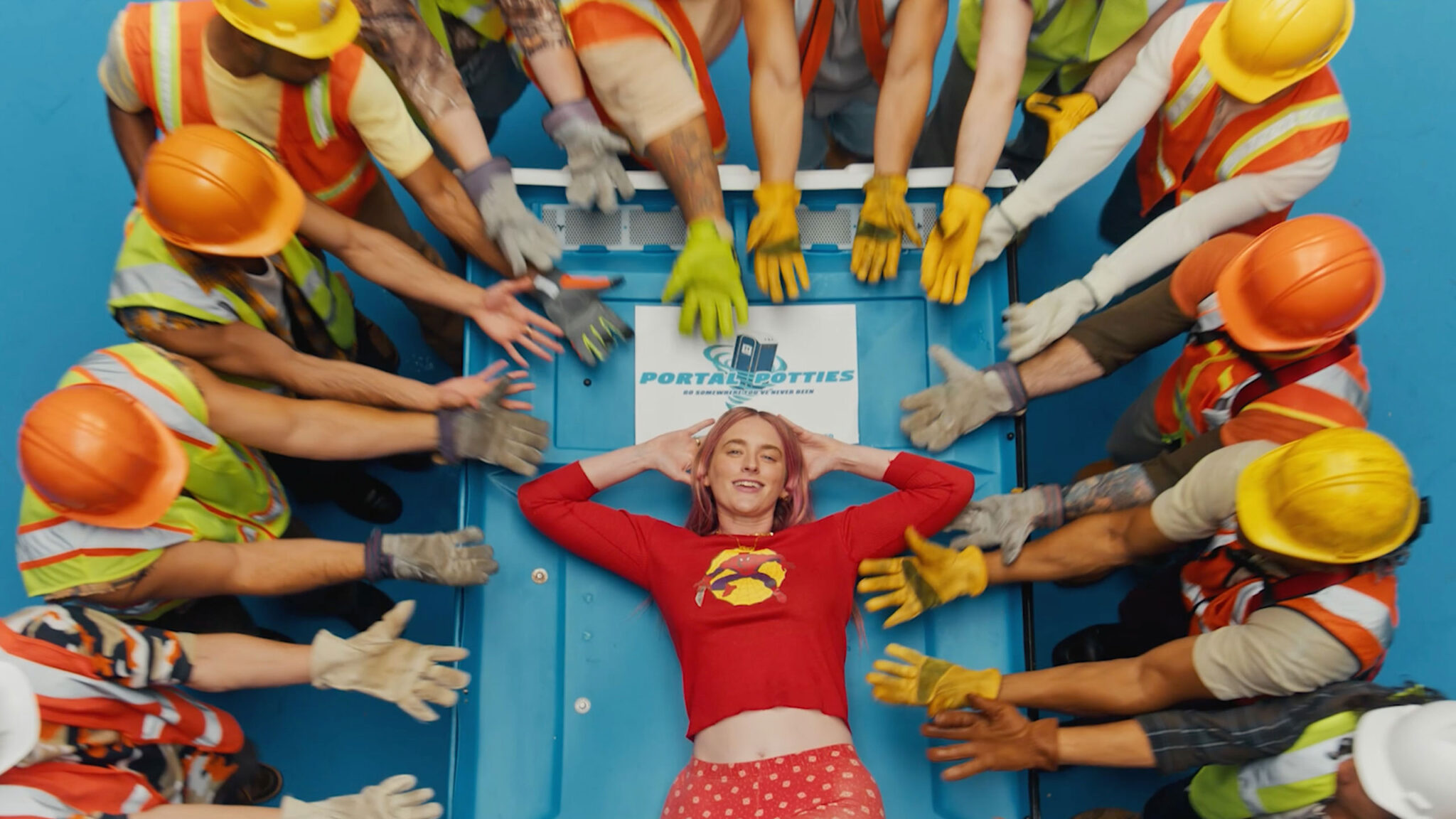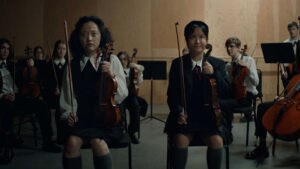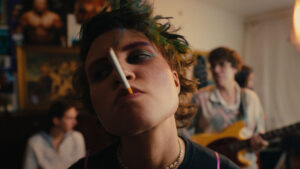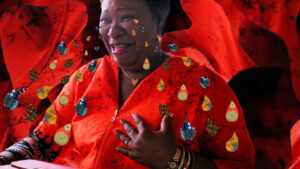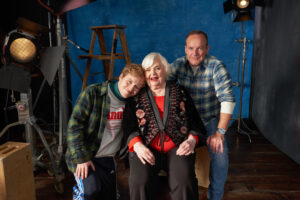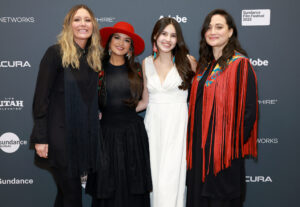Kate Jean Hollowell’s “Say Hi After You Die” took home the Short Film Jury Award: U.S. Fiction at the 2024 Sundance Film Festival.
By Lucy Spicer
One of the most exciting things about the Sundance Film Festival is having a front-row seat for the bright future of independent filmmaking. While we can learn a lot about the filmmakers from the 2024 Sundance Film Festival through the art that these storytellers share with us, there’s always more we can learn about them as people. This year, we decided to get to the bottom of those artistic wells with our ongoing series: Give Me the Backstory!
As summer heats up and the 2024 Sundance Film Festival Short Film Tour officially begins its circuit, we’re digging back into all the short films that had us laughing, crying, gasping, and contemplating at the Sundance Film Festival earlier this year. To commemorate Pride Month, we’ve assembled nuggets of wisdom from eight of the LGBTQ+ filmmakers who brought their shorts to the 2024 Fest, including four award winners.
Through their unique and insightful short films, these eight filmmakers explore a tense meeting between a wealthy couple and some scrap dealers, unexpected fallout from a gift of new sneakers, a haunting through a queer lens, a confrontation between some bugs at a diner, a portrait of a gender nonconforming creative, a reincarnation involving a portable toilet, a horror story about the monsters in our minds, and an animated tale of sacrifice and immigration.
Read on to learn more about eight of the LGBTQ+ filmmakers who brought their stories to the 2024 Sundance Film Festival Short Film Program.
What was the biggest inspiration behind this film?
Àlex Lora Cercós (The Masterpiece): “‘Homo homini lupus.’ The seed for this concept was Hobbes’ idea that ‘men are wolves to other men,’ referring to the dark aspect of human nature where individuals may act in ways that are detrimental to others. The realities of class struggle, immigration, and racism served as triggers. Additionally, the game of chess, both conceptually and visually, played a significant role for me as the director. I envisioned the story as a strategic battle between white and black pieces on an uneven board with different privileges.”
Gerardo Coello Escalante (Viaje de Negocios): “When I met my now girlfriend, we shared stories of growing up, as you do when you get to know someone. On our second date, I told her anecdotes about being a child in Mexico City at a very close-knit private school, naïve to the bigger forces around me and vying to be closer to America in whatever way possible. She told me there was a movie somewhere in those stories, and in January of last year we started developing what has now become this short film.”
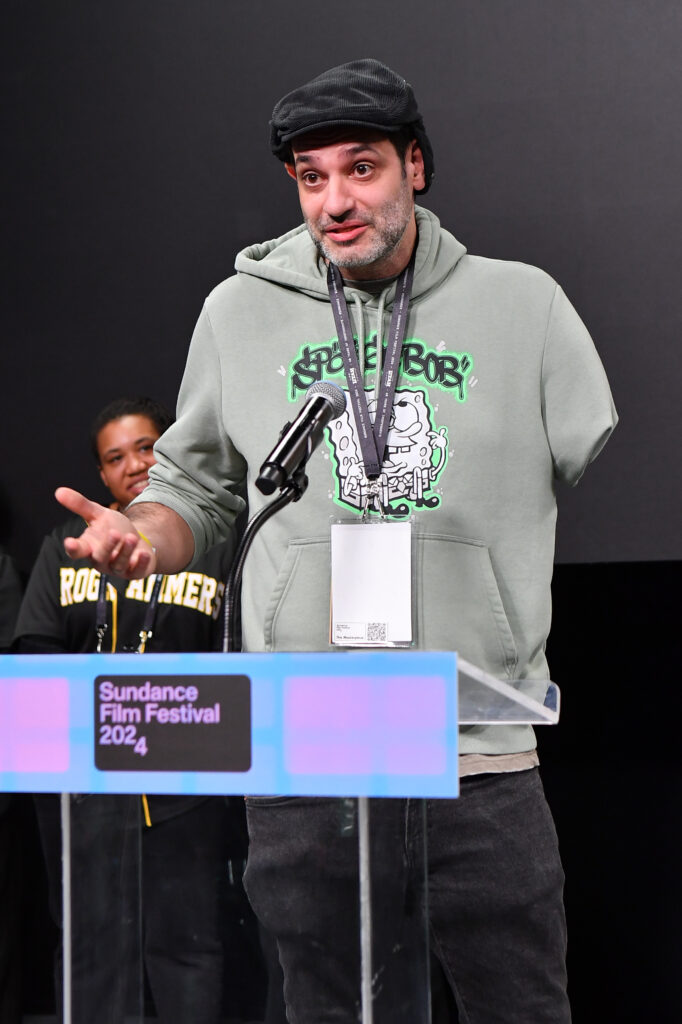
Dylan Guerra (Didn’t Think I’d See You Here): “I wanted to tell a queer ghost story. So often LGBTQ+ people are removed from the genre spaces — I was very passionate about queering the lens of a traditional haunting, updating it and putting it against the backdrop of modern day Bushwick.
“At the time of writing and conceptualizing the film, I was dealing with a particular sort of heartbreak that made me feel like I was being haunted — and worse, that everyone could see that something was haunting me. This translates into Didn’t Think I’d See You Here in a variety of ways and provides inspiration for a big thematic element I won’t reveal so I don’t spoil the surprises in the film.
“Another bit of inspiration for this film is a true story: One morning, my roommate and I woke up to find our shower running without either of us having turned it on. We began to joke that our apartment was haunted. This is a direct parallel of the opening scene in the film.”
Phoebe Jane Hart (Bug Diner): “I was frustrated in a sexless relationship and struggling with jealousy. I had outlined and meant to write this really sad film about a quiet woman working at a diner, and this dark/horny comedy about human relationships revealed through animal and insect characters came out instead. I disbursed various relationship experiences across six characters and let my jealousy at the time push through the story and reinvent itself with less judgment. Jealousy can hurt; it can also be hot.”
Alex Hedison (ALOK): “ALOK. Who they are and the work they’re doing in the world, uniquely expressed through their writing, speaking, and art-making.”
Kate Jean Hollowell (Say Hi After You Die): “A big, old, beautiful port-a-potty. And the idea of reincarnation. What a combo.”
Masha Ko (The Looming): “My grandfather passed very unexpectedly, and I didn’t get to say goodbye.”
Daniel Zvereff (Drago): “Drago was inspired by a multitude of things. The story itself is entirely fictional, and although it bears no parallels to my family’s story of displacement, I aimed to capture the feeling of losing everything and starting over, as well as the sacrifices that are often necessary to build a foundation for future generations. The name Drago actually comes from my childhood friend’s father who lived across the street from me. Drago immigrated from Yugoslavia. He worked full time at FedEx and also worked a night job as a bus driver to put both of his kids through college. I think many children of immigrant or refugee parents probably could relate to the experience of extremely hardworking parents.”
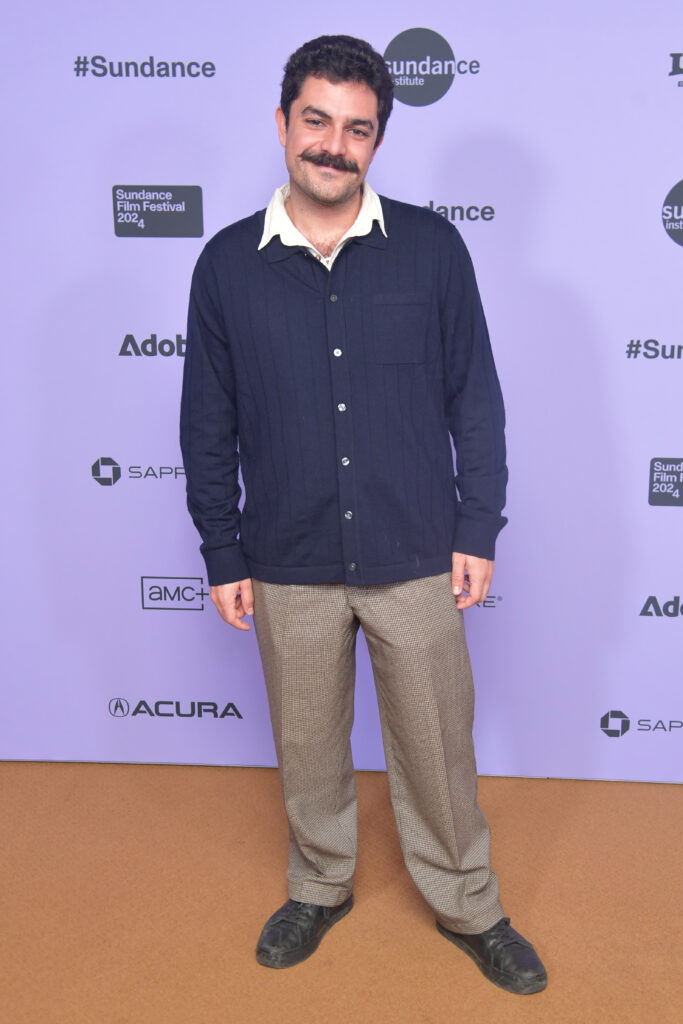
Describe who you want this film to reach.
Cercós: “We wanted to reach the general public and global audiences, crafting a film that is accessible, engaging, and thought-provoking for people from diverse backgrounds. We also believe it holds potential interest for educational institutions, serving as a catalyst for discussions about systemic issues. Additionally, we see value in sharing it with community organizations, as it has the capacity to spark meaningful conversations that may lead to actionable initiatives.”
Guerra: “I want this film to reach LGBTQ+ people and horror enthusiasts. People who are looking to see more of themselves in genre spaces. And also people who are interested in the more surreal sort of horror.”
Hart: “It’s for cucks.”
Hedison: “I’d love the film to reach those who have a preconceived idea of gender and acceptable gender expression, who fear what they don’t know. We are all learning and changing, every minute. Hopefully this film offers a new perspective on an old story.”
Ko: “This film should reach audiences who appreciate psychological horror with a deeper meaning — those who seek films that not only thrill but also provoke thought and stir empathy. It’s particularly resonant for viewers attuned to societal issues around aging and technology’s impact on human connection. This film hopes to speak to older viewers who may directly relate to the themes, as well as younger viewers, serving as a reflective lens on the universal journey of aging. It’s for anyone who values horror films that challenge social norms and explore the often unseen facets of life.”
Why does this story need to be told now?
Escalante: “I think there is a kind of falling out of love with America that I see in many peers — like the sheen has rubbed off. I think it feels very much like getting to be old enough to realize that your parents are fallible. There is a universal quality to that, but it also feels specific to this time we’re living in, these problems we’re facing.”
Guerra: “Didn’t Think I’d See You Here is dissecting the millennial anxiety around loneliness, and in particular queer loneliness. It’s a haunting tale surrounding a void. The story needs to be told now because we are living in a time that feels hyperexistential; political, environmental, and health crises surround us daily. This film explores this dread but does so from an upbeat, almost surrealist, and fun angle — it is a mingling of humor and fear. Also, in a world of reboots and revivals, this is a classic ghost story that’s been updated and refreshed so that it is both familiar and its own bold, new thing.”
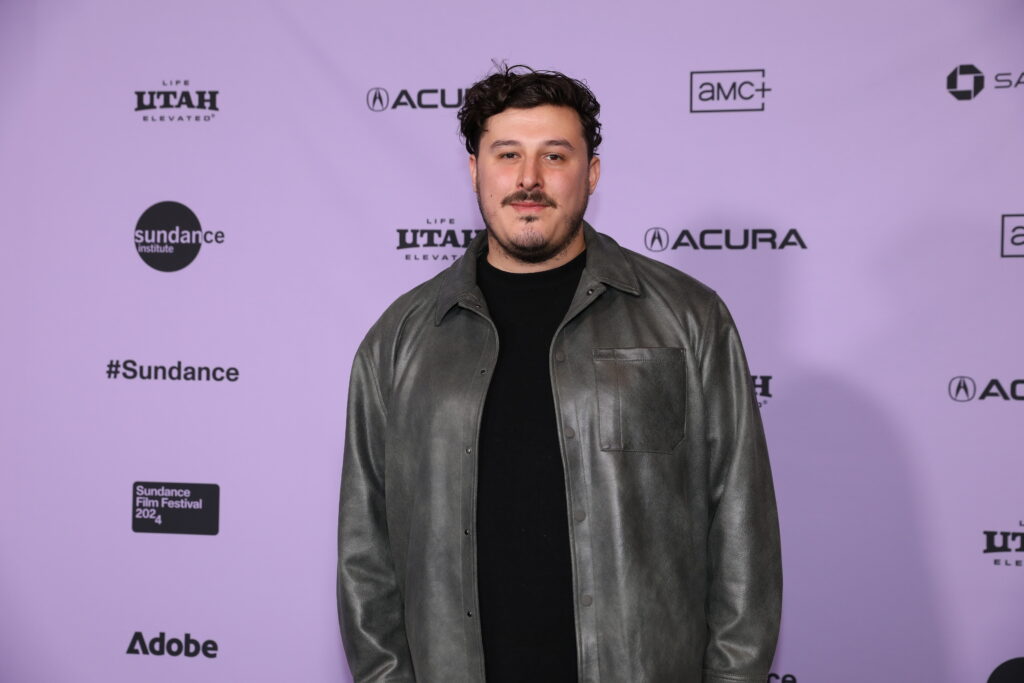
Ko: “The Looming is a story that speaks to what many quietly endure — the creeping solitude that comes with aging and the daunting specter of dementia. It’s a story that shines a light on the often ignored realities of our elders, who are too frequently relegated to the margins of our narratives and our lives.
“In today’s fast-paced world, where technology often eclipses personal connection, this film also attempts to remind us of the human need for empathy and recognition, regardless of age. The use of an audio assistant speaker in the film isn’t just a nod to technological advances, but a symbol of the connection we all seek — underscoring how, despite the digital age’s promises of closeness, we can still find ourselves alone.
“Ultimately, The Looming reminds us of the silent echoes of aging and serves as a call to look at our elders with empathy and inclusivity.”
How do you want people to feel after they see your film?
Cercós: “It would be interesting if some members of the audience were to experience a degree of discomfort that could prompt self-reflection. The hope is that this uneasiness would lead people to question ingrained biases, recognize their own privilege, and consider how we all can contribute to a more inclusive and just society.”
Hart: “Hornier than they came in.”
Hedison: “Hopeful, curious, and excited by the endless possibilities in life. And that there are an infinite number of ways to be human.”
Zvereff: “To be proud of their family and where they came from.”
Your favorite part of making the film? Memories from the process?
Escalante: “Working with all of these young actors was really such a joyous experience. We felt a responsibility toward them to make their first experience on set a good and happy one. Having them on set really infused a sense of magic — they were discovering moviemaking. The crew brought their best selves every day, and I’m incredibly grateful that so many people, including the parents and the school staff, made this film what it is. You won’t find better community support than in Mexico.”
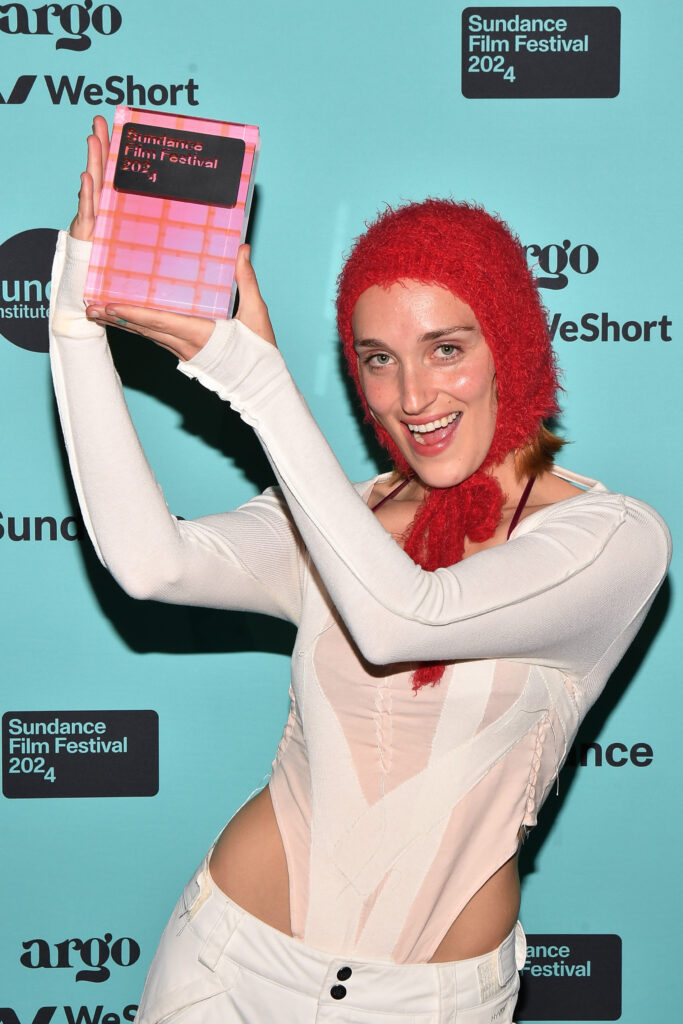
Hollowell: “We shot a majority of the film at my house in Los Angeles. It felt like every day I was having a birthday party for myself (where I forced everyone to focus all their actions around me while I bossed them around). And the best part was that shooting at my house was free, and there was no homeowner or locations manager to tell us we couldn’t leave a forklift in the driveway overnight.”
Films are lasting artistic legacies; what do you want yours to say?
Hart: “This woman is a freak, and maybe I am, too, and maybe that’s OK.”
Hollowell: “We’re all just friends walking each other home.”
Zvereff: “With our world experiencing warming trends and escalating political instability, migrations and displacements are increasing. In creating Drago, my goal was to produce a piece that cultivates empathy and illuminates the lives of immigrant workers. These individuals, through their quiet determination, enrich American society by prioritizing their children’s opportunities over their own dreams.”
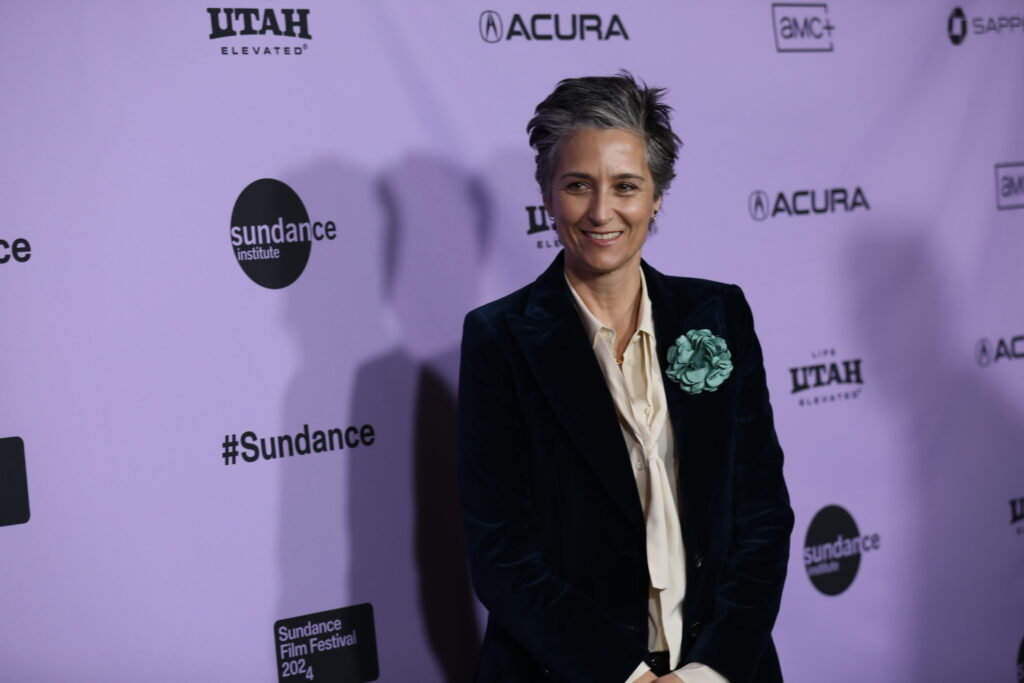
If you weren’t a filmmaker, what would you be doing?
Guerra: “Probably event planning. Or, oh God, politics. Oh, no.”
Hart: “Private eye”
Hollowell: “Mini golf business owner”
Zvereff: “Billionaire tech startup founder”
What is something that all filmmakers should keep in mind in order to become better cinematic storytellers?
Escalante: “At the end of the day, film is a highly collaborative process. Having trust in and respect for your actors, your crew, your producers, and everyone else who gives their time and energy to make a film is as important as developing a cohesive vision for the project.”
Hart: “Start making and leave the ‘figuring it all out’ for the process, but just start making.
Filmmaker/professor Pia Borg told me this when I felt stuck deciding.”
Hedison: “Everyone has their own personal truth test. As an artist, I ask myself the question, ‘Am I feeling this, or am I thinking it? Does the choice I’m making in a moment, a scene, or an image elicit a feeling in me? Am I choosing this path out of genuine instinct or merely an anticipated result?’ If the art gesture connects with me, then I know it will connect with others as well.”
Ko: “You can learn everything when it comes to the technicalities of making a film. But what you cannot easily learn is an authentic understanding of different life phenomena. So, my advice to filmmakers is to stay curious and open to interesting life experiences. There are some stories that I have written that I know I cannot yet tell due to my limited first-hand understanding of the phenomena at hand.”
Zvereff: “Embrace your limitations.”
What was the last book you read?
Escalante: “The Dispossessed by Ursula K. Le Guin”
Guerra: “The Broken Earth trilogy by N. K. Jemisin (Read it!!!! It will change you!!)”
Hart: “Klara and the Sun by Kazuo Ishiguro, gentle science fiction.”
Hollowell: “Proof of Heaven: A Neurosurgeon’s Journey into the Afterlife by Eben Alexander”
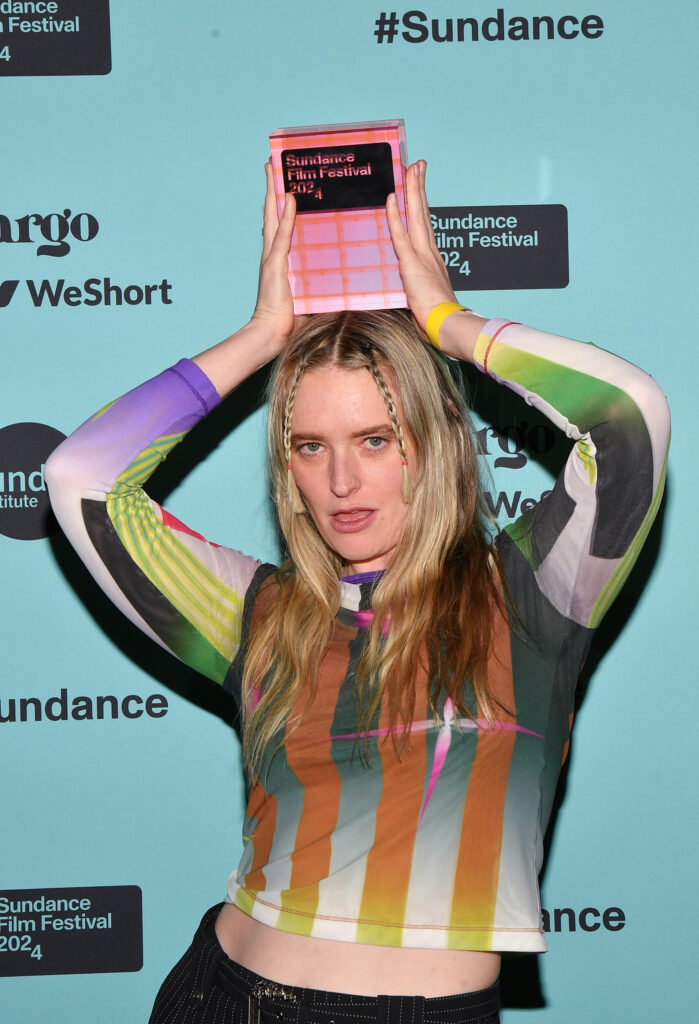
Ko: “The Book of Disquiet by Fernando Pessoa”
Zvereff: “The Order of Time by Carlo Rovelli”
Tell us about your history with Sundance Institute. When was the first time you engaged with us? Why did you want your film to premiere with us?
Cercós: “The first time was in 2012 when my short documentary Odysseus’ Gambit was selected. In 2014, I had another short documentary titled A Hole in the Sky in the program. In 2017, our feature documentary The Fourth Kingdom received a Sundance documentary grant, which essentially allowed us to produce the film. So, I wanted to premiere this fiction at Sundance because it represents the best possible scenario and is a dream come true. Additionally, the Festival holds special significance for me, having played a transformative role in my career. I moved to the U.S. coming from a poor neighborhood in Barcelona, with no contacts in the film industry, so the support garnered through these selections was key to my journey as a filmmaker.”
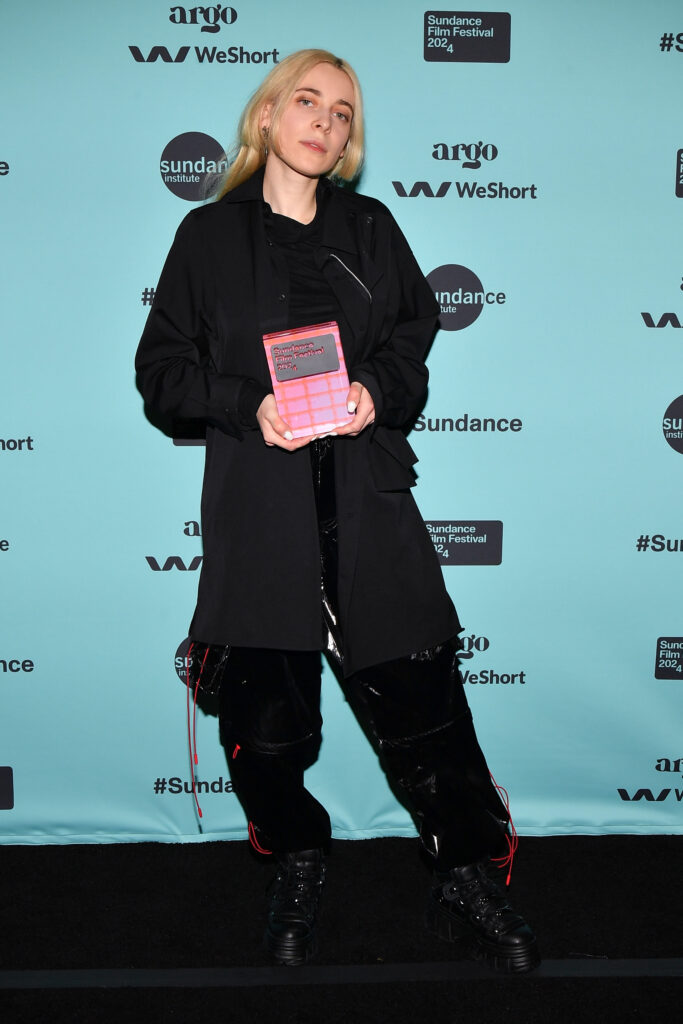
Escalante: “I first came to Sundance in 2018 with the Ignite program. Through that fellowship, I was invited to participate in the 2018 Creative Producing Summit with my feature script Forgive Us Sinners. At the summit, I was invited to send my script for consideration to the Feature Film Program, and I was accepted into the 2019 Screenwriters Intensive. Sundance is a rare champion for early-career independent filmmakers. Premiering here is a dream come true.”
Who was the first person you told when you learned you got into the Sundance Film Festival?
Cercós: “I initially thought the message was a rejection, so I had to read the first paragraph a couple of times to believe that the film was selected. I got a bit emotional and I texted the news to my family in Spain. Later, I shared them with my wife and kids.”
Guerra: “When I first saw the email that our short got into Sundance, I put my phone down, walked into my office and background-checked the person who sent the email to make sure that they were real. When I saw that they were indeed real, I then reverse-checked the email address just to make sure, and the email address brought me to the official Sundance website. And then I started to freak out, and I called the star and co-producer, Yaron Lotan. When I told him, he didn’t believe it at first either, but once I let him know I had already done a few background checks, he also started to freak out, followed by a long stretch of both of us saying ‘oh my God’ back and forth through tears on the phone. We still text each other some variation of ‘oh my God’ every day.”
Hedison: “My wife. I raced upstairs shouting and screaming her name. She thought something terrible happened until she finally understood what I was saying. Then she started screaming, too.”
Hollowell: “My producer, Miranda Khan. I think we both thought we were getting pranked.”
Zvereff: “My partner was the first. We were at the movie theater when I realized I had a missed call and a voicemail from Sundance… from six hours prior that I somehow missed. I don’t think anyone has ever left a theater so abruptly to make a phone call as I did.”

What’s your favorite film that has come from the Sundance Institute or Festival?
Cercós: “Maybe the movies made by friends! I love John James’ Siempre, Luis and Mike Cahill’s I Origins… and then maybe Blood Simple, Reservoir Dogs, Heavy, Moon, Beasts of the Southern Wild, The Wolfpack, 13 Tzameti… It’s impossible to choose. So many great movies premiered at Sundance.”
Guerra: “Sorry to Bother You”
Hart: “The Burden by Niki Lindroth von Bahr. Unbelievable.”
Hedison: “So many, but probably Manchester by the Sea.”
Hollowell: “Sorry to Bother You. INCREDIBLE watch and absolutely genius.”
Ko: “Mandy”

